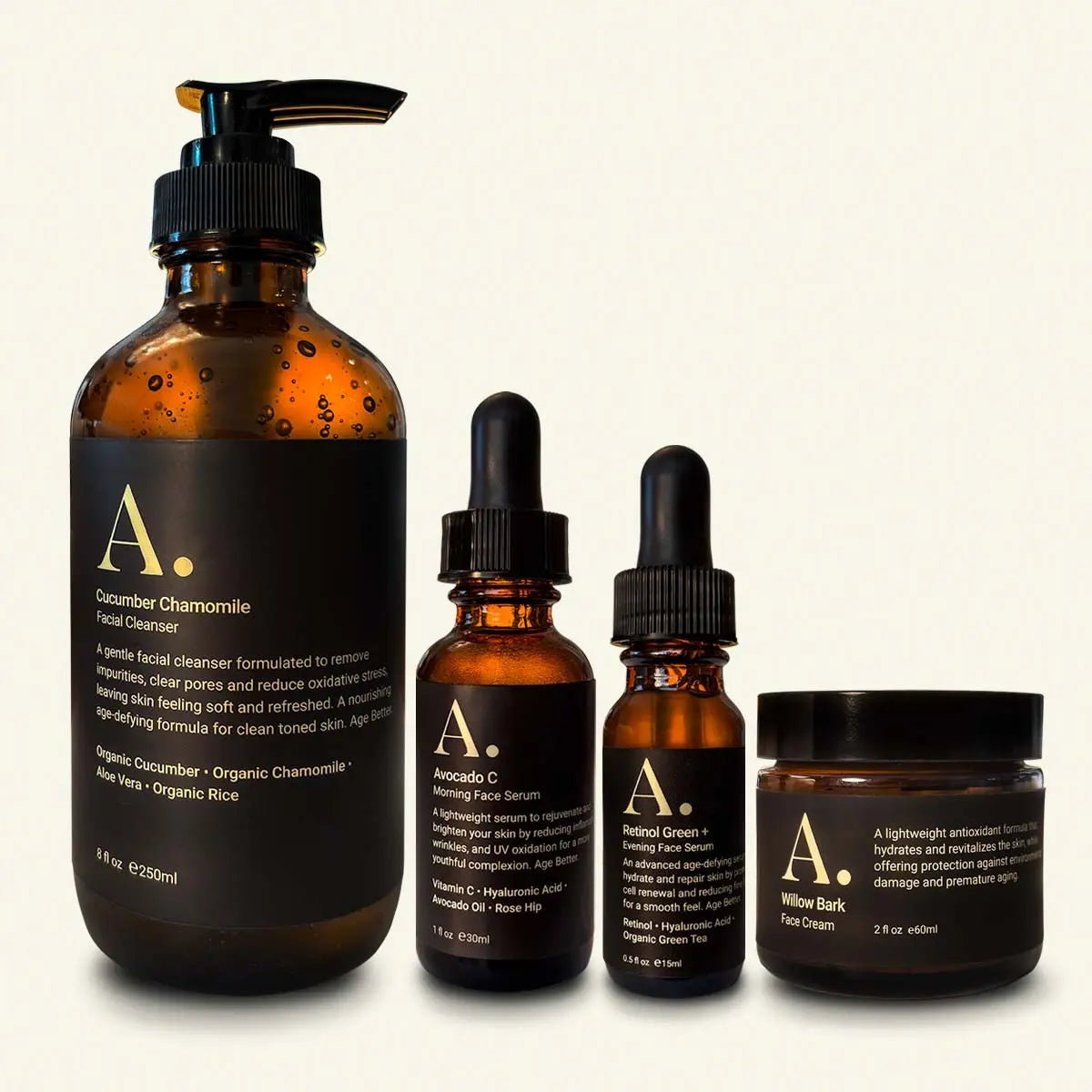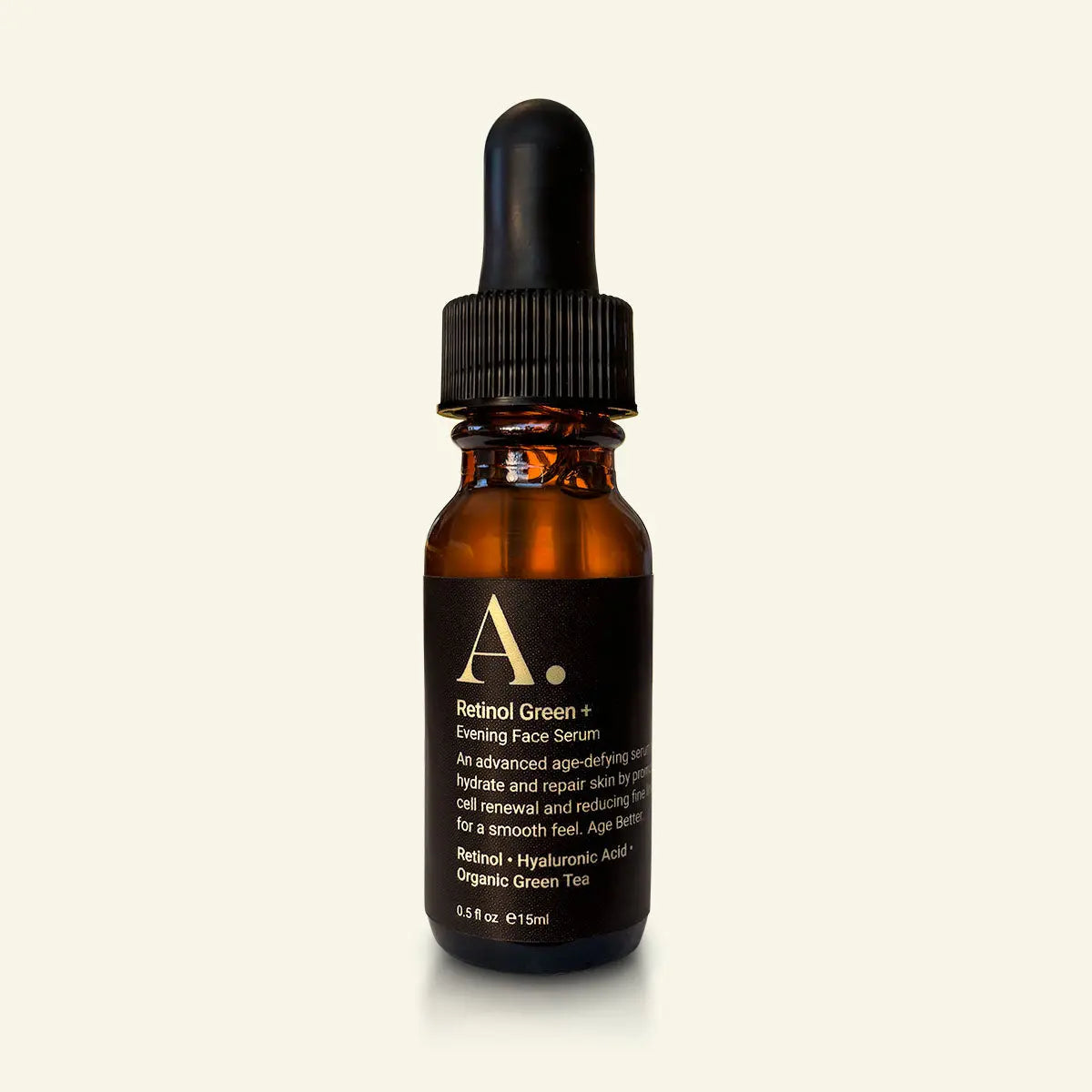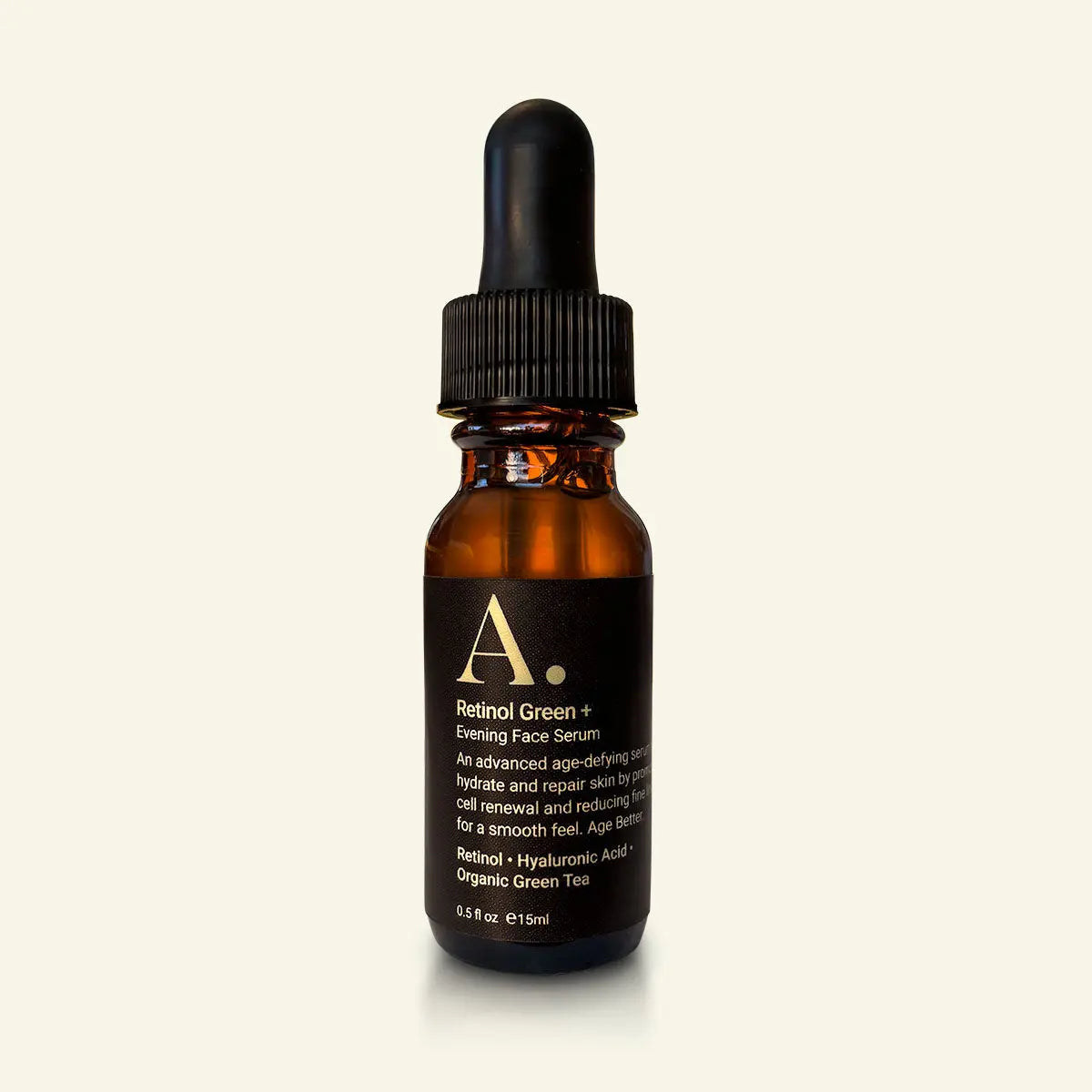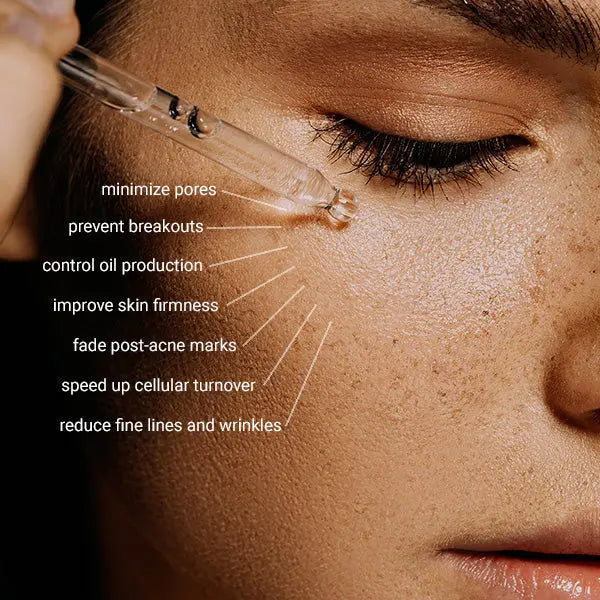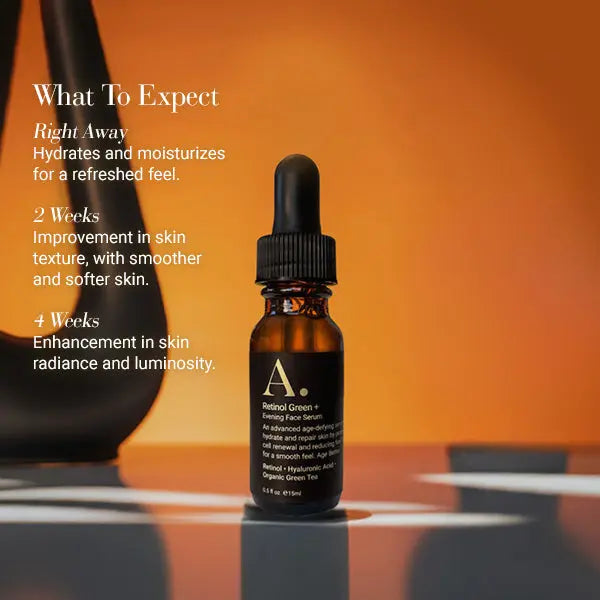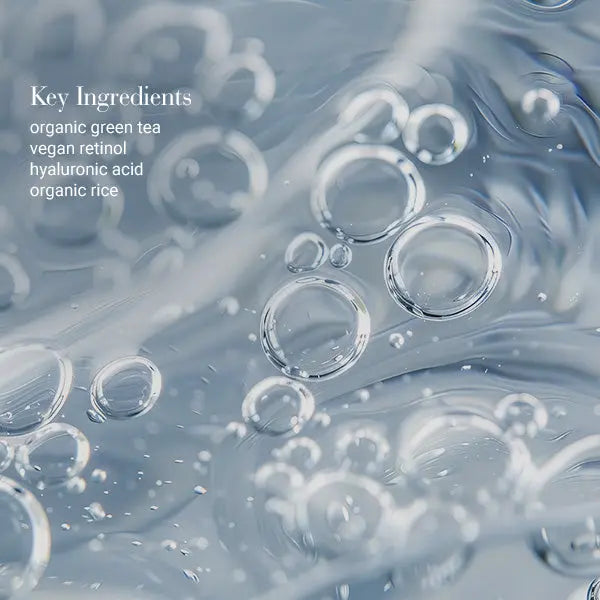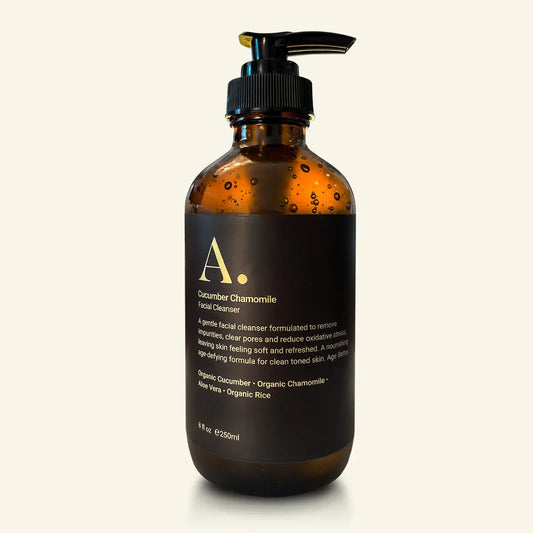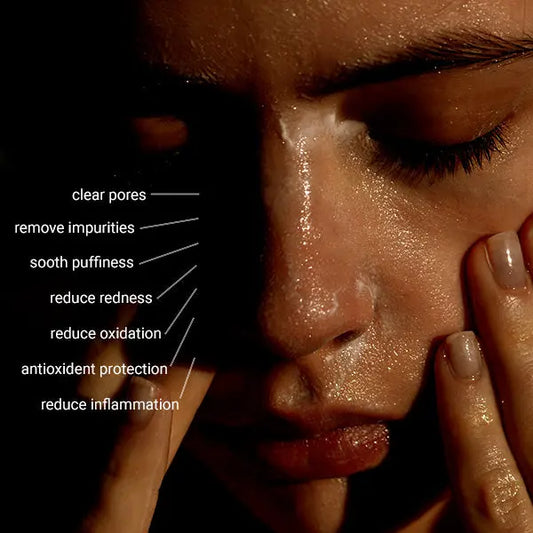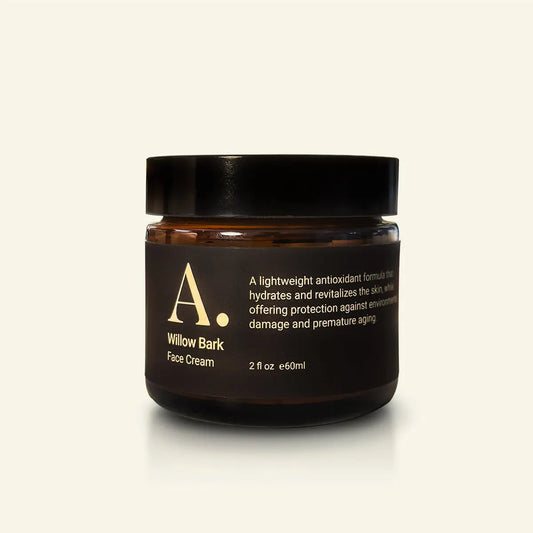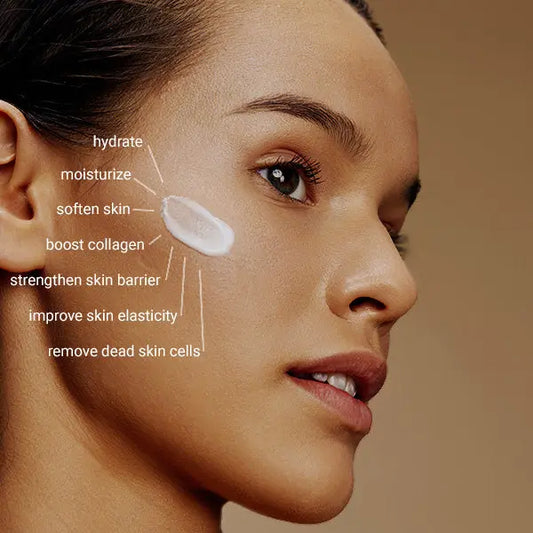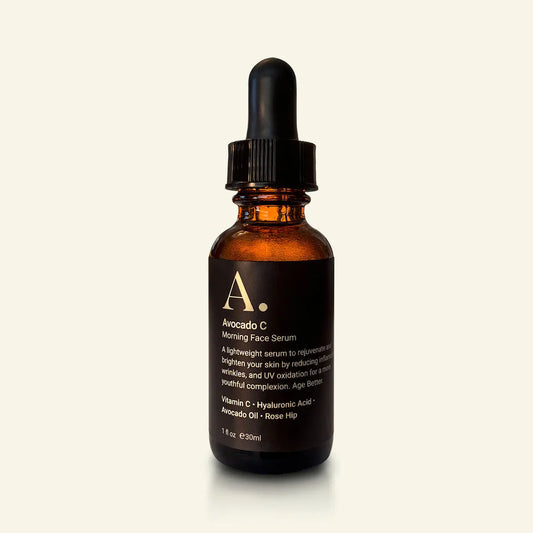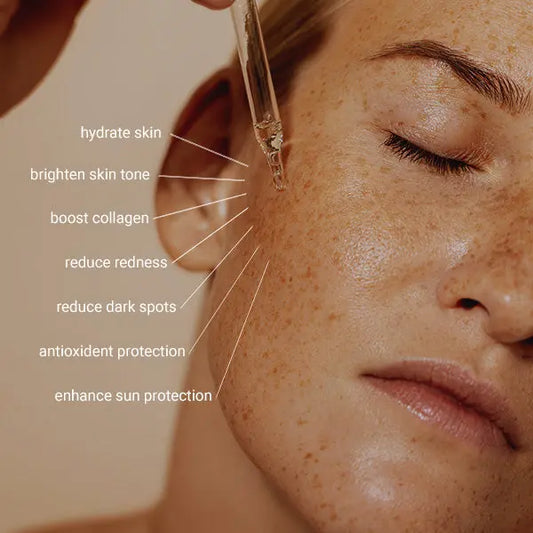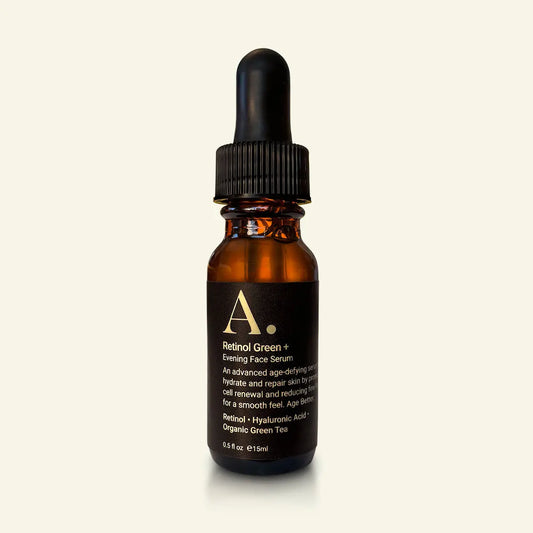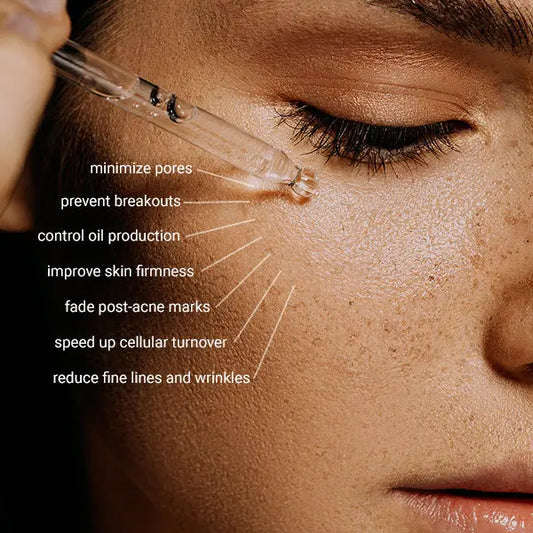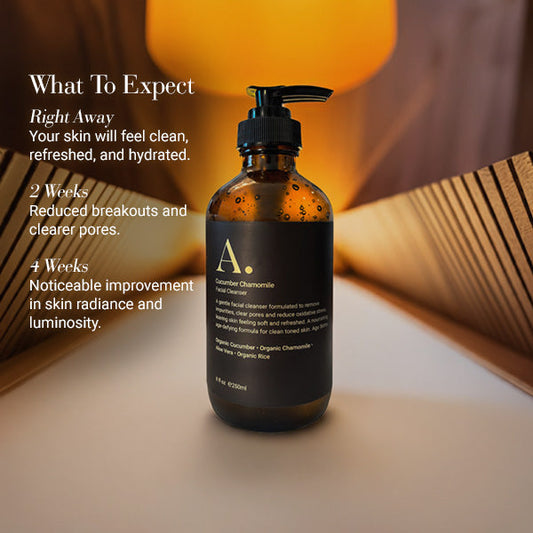
Benefits of Retinol: Healthy, Youthful Skin
Share
Benefits of Retinol: Healthy, Youthful Skin
When it comes to skincare, few ingredients have achieved the legendary status of retinol. Celebrated for its versatility and transformative effects, retinol has become a staple in the world of dermatology and beauty. From reducing fine lines to combating acne, this powerhouse ingredient offers numerous benefits that can rejuvenate and enhance your skin’s appearance. In this article, we’ll explore the science behind retinol, its wide-ranging benefits, and tips for incorporating it into your skincare routine.
What is Retinol?
Retinol is a form of vitamin A, a vital nutrient that plays a crucial role in maintaining healthy skin, vision, and immune function. It is part of a larger group of compounds known as retinoids, which also include retinoic acid, retinaldehyde, and various synthetic derivatives. Retinol is the most commonly used retinoid in over-the-counter (OTC) skincare products due to its efficacy and relatively gentle nature compared to prescription-strength retinoids.
Once applied to the skin, retinol is converted into retinoic acid, the active form that interacts with skin cells. This conversion process allows retinol to influence cellular behavior, triggering skin renewal, boosting collagen production, and regulating sebum production. These effects make retinol an all-in-one solution for many common skin concerns.
1. Reduces Fine Lines and Wrinkles
One of the most celebrated benefits of retinol is its ability to minimize the appearance of fine lines and wrinkles. Aging skin loses collagen and elastin, proteins responsible for maintaining its firmness and elasticity. Retinol works by stimulating fibroblasts—cells responsible for collagen production—thereby replenishing the skin’s structural support over time.
In addition to collagen synthesis, retinol helps improve skin texture by increasing cell turnover. This process replaces old, damaged skin cells with fresh, healthy ones, creating a smoother, more youthful complexion. Over consistent use, retinol can visibly diminish the depth and severity of wrinkles, making it a cornerstone ingredient in anti-aging skincare.
2. Improves Skin Texture and Tone
Uneven skin texture and tone can result from various factors, including sun damage, acne scars, and aging. Retinol helps to address these concerns by promoting exfoliation at a cellular level. Unlike physical exfoliants, which can sometimes cause irritation, retinol gently removes dead skin cells and encourages the growth of new ones.
This process helps fade hyperpigmentation, smooth rough patches, and even out the complexion. Over time, consistent use of retinol can transform dull, uneven skin into a radiant, refined surface.
3. Combats Acne and Breakouts
For those struggling with acne, retinol can be a game-changer. It is highly effective in treating both comedonal acne (blackheads and whiteheads) and inflammatory acne (pimples and cysts). Retinol helps regulate sebum production, preventing pores from becoming clogged with excess oil and dead skin cells—a primary cause of acne.
Additionally, its anti-inflammatory properties reduce redness and swelling associated with active breakouts. By normalizing skin cell turnover, retinol also prevents the formation of new blemishes, making it an excellent long-term solution for clearer skin.
4. Minimizes Pores
Enlarged pores can make the skin look uneven and aged. While you cannot physically shrink the size of your pores, retinol can make them appear smaller. By keeping pores clear of debris and reducing excess oil, retinol prevents them from becoming stretched and more visible.
Furthermore, the collagen-boosting effects of retinol help to tighten the skin around the pores, creating a smoother and more refined appearance. This benefit makes retinol particularly appealing to those with oily or combination skin types.
5. Enhances Skin Resilience
Retinol strengthens the skin barrier, the outermost layer of the skin that protects against environmental aggressors like pollution, UV rays, and pathogens. A compromised skin barrier can lead to dryness, sensitivity, and increased risk of irritation.
By stimulating the production of lipids and proteins essential for maintaining the skin’s protective function, retinol enhances the barrier’s resilience. This added protection not only keeps your skin healthier but also makes it better equipped to tolerate environmental stressors.
6. Fades Dark Spots and Hyperpigmentation
Hyperpigmentation—dark patches of skin caused by an overproduction of melanin—can result from sun exposure, hormonal changes, or post-inflammatory acne. Retinol effectively reduces these dark spots by accelerating the skin’s natural exfoliation process and inhibiting melanin production.
Over time, retinol lightens pigmentation, revealing a brighter and more even complexion. For individuals dealing with melasma or sunspots, retinol can be a highly effective part of their skincare regimen.
7. Boosts Radiance
Dullness is a common skin concern that occurs when dead skin cells accumulate on the surface. Retinol’s exfoliating properties remove these dead cells, allowing fresh, radiant skin to shine through. Regular use of retinol revitalizes the skin, restoring its natural glow.
The improved circulation and enhanced collagen production associated with retinol use also contribute to a brighter, healthier complexion, making it an essential ingredient for achieving luminous skin.
How to Incorporate Retinol into Your Skincare Routine
To maximize the benefits of retinol and minimize potential side effects, it’s essential to use it correctly. Here are some tips for incorporating retinol into your skincare regimen:
1. Start Slowly
Retinol can cause irritation, redness, and dryness, especially when you first start using it. Begin by applying it once or twice a week, gradually increasing the frequency as your skin builds tolerance.
2. Use a Pea-Sized Amount
A little retinol goes a long way. Apply a pea-sized amount to clean, dry skin, spreading it evenly across your face. Avoid sensitive areas like the corners of your mouth, eyes, and nostrils.
3. Pair with Moisturizer
To counteract potential dryness, follow your retinol application with a hydrating moisturizer (like Ages Papaya Hyaluronic Acid Face Cream). You can also use the "sandwich method" by applying a layer of moisturizer before and after retinol.
4. Apply at Night
Retinol breaks down when exposed to sunlight, so it’s best to use it at night. Always follow up with sunscreen during the day, as retinol can make your skin more sensitive to UV rays.
5. Be Patient
Results from retinol take time. While you may notice improvements in skin texture and tone within a few weeks, significant changes in fine lines, wrinkles, and pigmentation may take several months of consistent use.
Who Can Benefit from Retinol?
Retinol is suitable for a wide range of skin types and concerns, but it’s not a one-size-fits-all solution. Here’s a breakdown of who can benefit from retinol and who should approach it with caution:
Suitable For:
- Aging Skin: To address fine lines, wrinkles, and loss of elasticity.
- Acne-Prone Skin: To reduce breakouts and prevent future blemishes.
- Dull or Uneven Skin: To boost radiance and refine texture.
- Hyper-pigmented Skin: To fade dark spots and achieve a more even complexion.
Use with Caution:
- Sensitive Skin: Those with conditions like rosacea or eczema should start with low concentrations and consult a dermatologist.
- Pregnant or Nursing Individuals: Retinol use is generally discouraged during pregnancy or breastfeeding due to potential risks.
- New Retinol Users: Beginners should introduce retinol gradually to avoid irritation.
Common Misconceptions About Retinol
Despite its popularity, retinol is surrounded by myths that may deter people from trying it. Let’s debunk some common misconceptions:
1. Retinol Causes Peeling and Redness Permanently
While initial dryness or peeling is common, these effects are temporary as your skin adjusts. Using a gentle moisturizer and starting with a low concentration can minimize these issues.
2. Retinol Makes Skin Thinner
On the contrary, retinol strengthens the skin by boosting collagen and improving its barrier function. Any initial sensitivity is part of the adjustment process, not a sign of thinning.
3. Retinol Is Only for Aging Skin
Retinol’s benefits extend beyond anti-aging. It’s effective for acne treatment, improving texture, and fading hyperpigmentation, making it suitable for younger skin as well.
4. Retinol Shouldn’t Be Used on Sensitive Skin
While sensitive skin types need to approach retinol with caution, they can still benefit from it by using milder formulations or consulting a dermatologist for guidance.
Conclusion
Retinol is a skincare superhero with an impressive array of benefits. Whether you’re looking to reduce signs of aging, combat acne, or improve overall skin texture and tone, retinol can help you achieve your goals. By understanding how to use it effectively and incorporating it into your routine, you can unlock its full potential for healthy, radiant skin.
Remember, consistency is key, and patience pays off. With time and proper use, retinol can transform your skin, making it one of the most valuable investments in your skincare journey.
Interested in trying retinol? Check out our Retinol Green + Evening Face Serum.
